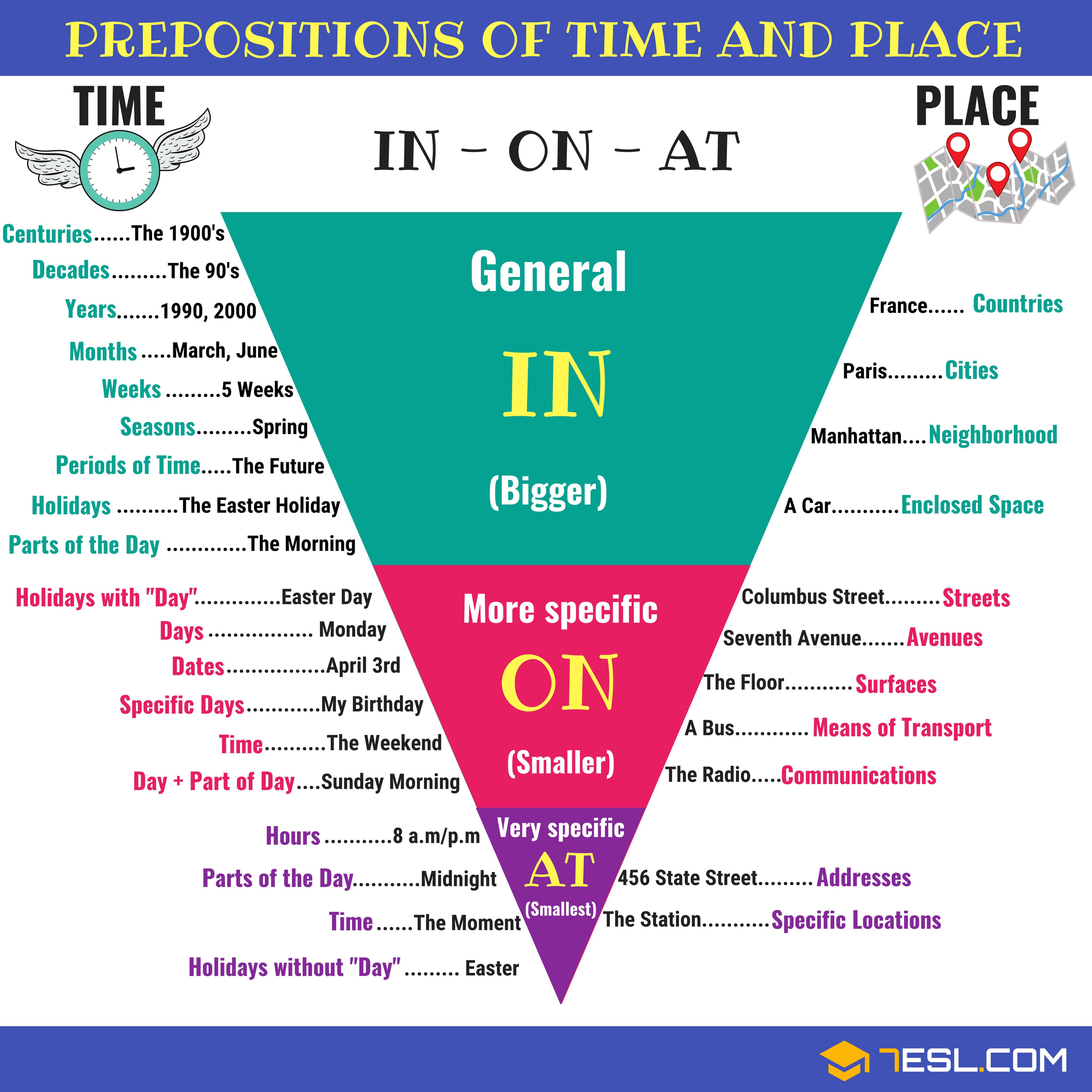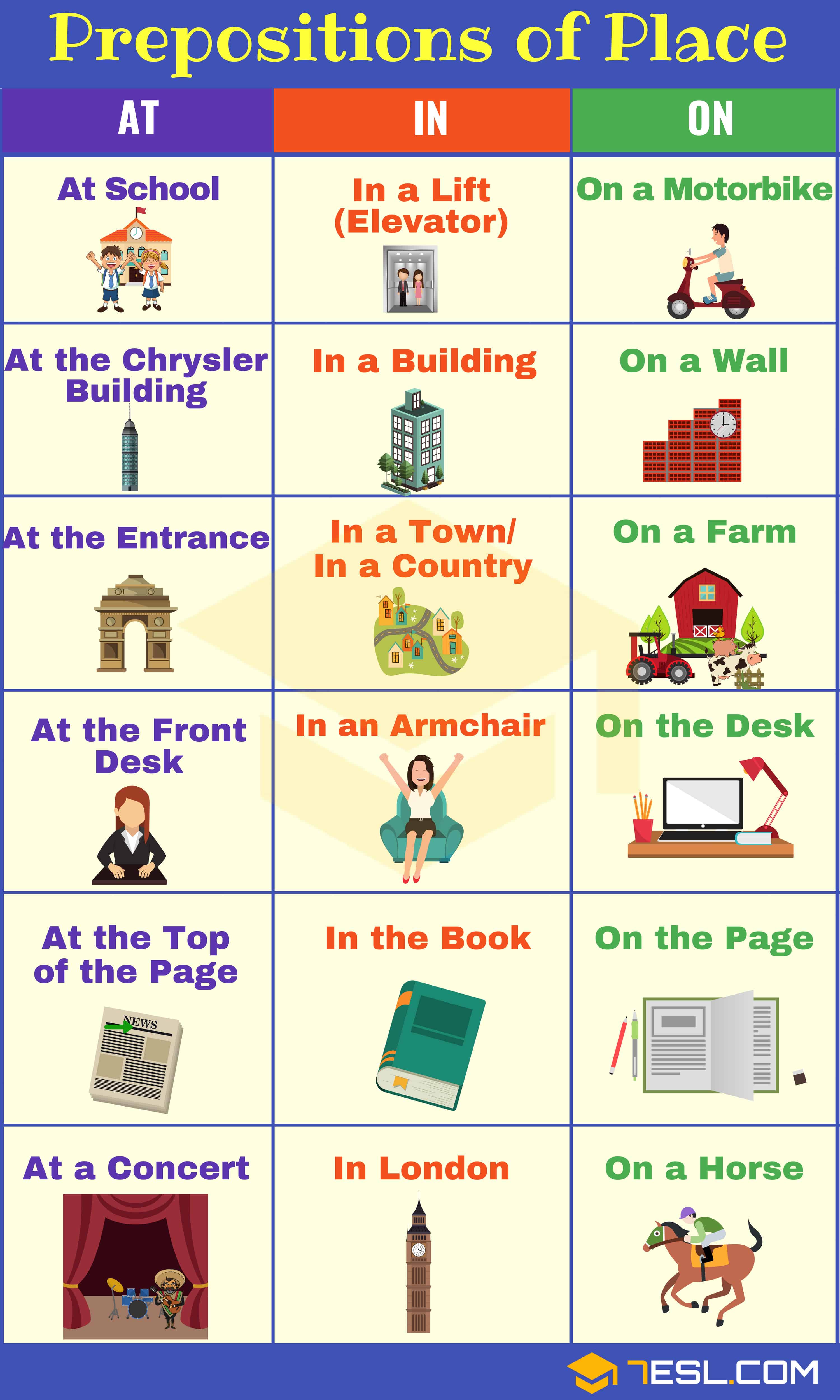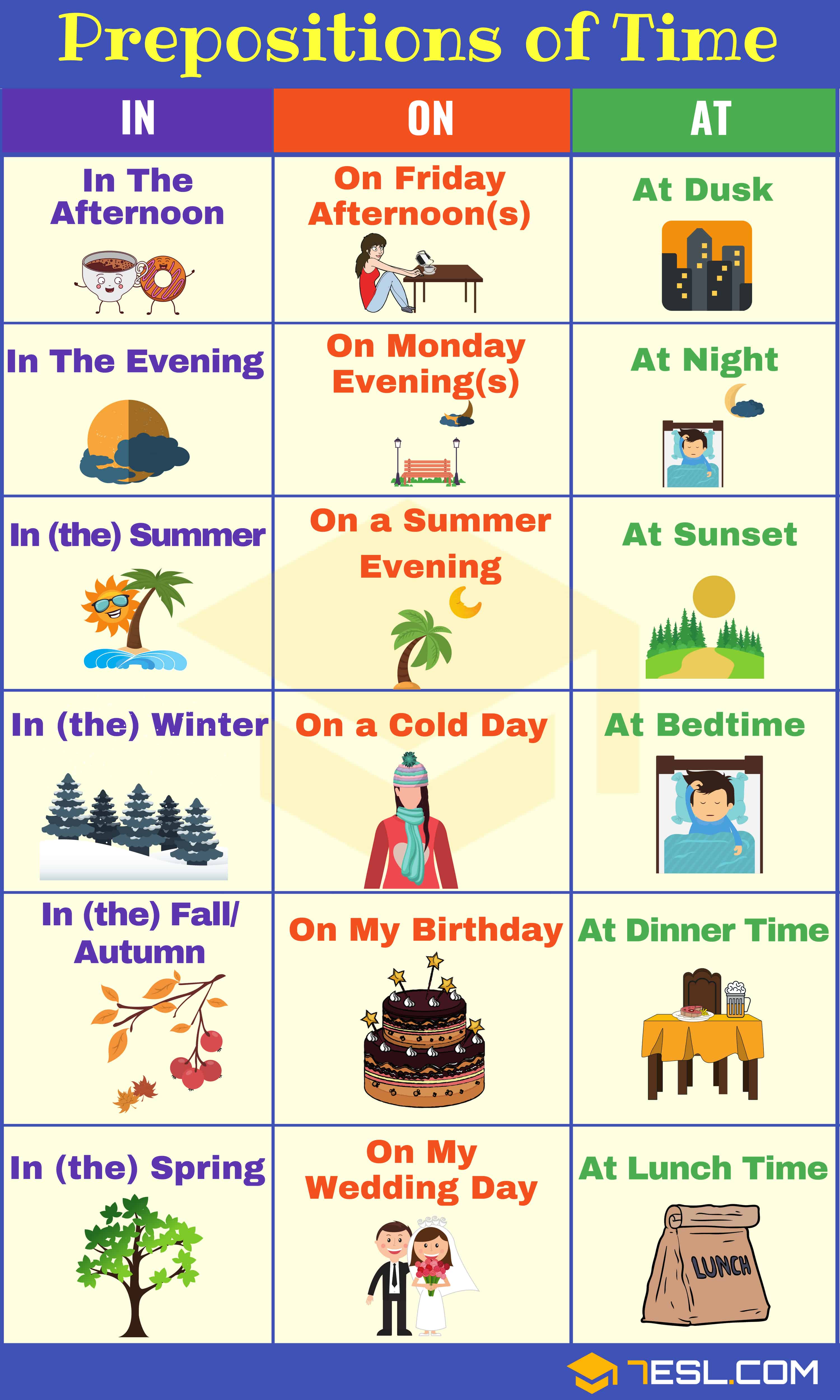Grammar
Pronouns
| Subject Pronouns | Object Pronouns | Possessive Adjectives | Possessive Pronouns | Reflexive Pronouns | |
|---|---|---|---|---|---|
| 1st person | I /aɪ/ |
me /miː/ |
my /maɪ/ |
mine /maɪn/ |
myself /'maɪ'self/ |
| 2nd person | you /juː/ |
you /juː/ |
your /jɔː/ |
yours /jɔːz/ |
yourself /jɔː'self/ |
| 3rd person (male) | he /hiː/ |
him /hɪm/ |
his /hɪz/ |
his /hɪz/ |
himself /hɪm'self/ |
| 3rd person (female) | she /ʃiː/ |
her /hɜː/ |
her /hɜː/ |
hers /hɜːz/ |
herself /hɜː'self/ |
| 3rd person (neutral) | it /ɪt/ |
it /ɪt/ |
its /ɪts/ |
(not used) | itself /ɪt'self/ |
| 1st person (plural) | we /wiː/ |
us /ʌs/ |
our /'auə/ |
ours /'auəz/ |
ourselves /ˌauə'selvz/ |
| 2nd person (plural) | you /juː/ |
you /juː/ |
your /jɔː/ |
yours /jɔːz/ |
yourselves /jɔː'self/ |
| 3rd person (plural) | they /ðeɪ/ |
them /ðem/ |
their /ðeə/ |
theirs /ðeəz/ |
themselves /ðəm'selvz/ |
Question words and phrases
| Question words | Usages | Examples |
|---|---|---|
What /wɒt/ |
Used to ask about things | - What are you doing? - What do you think about the movie? |
When /wen/ |
Used to ask about time | - When will the meeting start? - When are you leaving? |
Where /weə/ |
Used to ask about places | - Where’s my bag? - Where do you live? |
Who /huː/ |
Used to ask about people | - Who do you love the most in your family? - Who told you that story? |
Whom /huːm/ |
Used to ask about people (object of verb) | - Whom did you see in the morning? I saw Mr. Mark, my English teacher. - Whom was Jim talking to? He was talking to Jack, his new roommate. |
Which /wɪtʃ/ |
Used to ask about choices | - Which one do you choose? The left or right? - Of all the drinks in the menu, which one would you like? |
Whose /huːz/ |
Used to ask about possession | - Whose pencil is this? Is it yours? - Whose books are these? |
Why /waɪ/ |
Used to ask about reasons/ causes | - Why did it happen? I didn’t understand. - Why is he crying? |
How /haʊ/ |
Used to ask about manner/ process | - How can you explain this problem? Please tell us. - How can you get here? |
| Question Phrases | Usages | Examples |
|---|---|---|
How often…? /haʊ ˈɒfn/ |
Used to ask about frequency | - How often do you exercise? - How often does the train arrive? |
How long…? /haʊ lɒŋ/ |
Used to ask about duration | - How long is the movie? - How long have you been waiting? |
How much…? /haʊ mʌtʃ/ |
Used to ask about quantity (uncountable nouns) | - How much money do you have? - How much water should I drink daily? |
How many…? /haʊ ˈmɛni/ |
Used to ask about quantity (countable nouns) | - How many apples are there? - How many people are attending? |
What kind / What type…? /wɒt kaɪnd, wɒt taɪp/ |
Used to ask about categories or varieties | - What kind of music do you like? - What type of books do you read? |
Which kind / Which type…? /wɪtʃ kaɪnd, wɪtʃ taɪp/ |
Used to ask about specific categories or varieties | - Which kind of fruit do you prefer? - Which type of car do you want? |
Numeral
Ordinal Numerals
| № | Ordinal Numerals | Transcription |
|---|---|---|
| 1 | first | /fɜːst/ |
| 2 | second | /ˈsekənd/ |
| 3 | third | /θɜːd/ |
| 4 | fourth | /fɔːθ/ |
| 5 | fifth | /fɪfθ/ |
| 6 | sixth | /sɪksθ/ |
| 7 | seventh | /ˈsev(ə)nθ/ |
| 8 | eighth | /eɪtθ/ |
| 9 | ninth | /naɪnθ/ |
| 10 | tenth | /tenθ/ |
| 11 | eleventh | /ɪˈlev(ə)nθ/ |
| 12 | twelfth | /twelfθ/ |
| 13 | thirteenth | /ˌθɜːˈtiːnθ/ |
| 14 | fourteenth | /ˌfɔːˈtiːnθ/ |
| 15 | fifteenth | /fɪfˈtiːnθ/ |
| 16 | sixteenth | /ˌsɪksˈtiːnθ/ |
| 17 | seventeenth | /ˌsev(ə)nˈtiːnθ/ |
| 18 | eighteenth | /ˌeɪˈtiːnθ/ |
| 19 | nineteenth | /ˌnaɪnˈtiːnθ/ |
| 20 | twentieth | /ˈtwentɪəθ/ |
| 21 | twenty-first | /ˈtwentɪ fɜːst/ |
| 22 | twenty-second | /ˈtwentɪ ˈsekənd/ |
| 23 | twenty-third | /ˈtwentɪ θɜːd/ |
| 30 | thirtieth | /ˈθɜːtɪəθ/ |
| 35 | thirty-fifth | /ˈθɜːtɪ fɪfθ/ |
| 100 | hundredth | /ˈhʌndrədθ/ |
| 101 | hundred first | /ˈhʌndrəd fɜːst/ |
| 1000 | thousandth | /ˈθaʊz(ə)ndθ/ |
| 1 000 000 | millionth | /ˈmɪljənθ/ |
Prepositions of time and place
Ref:
- https://7esl.com/prepositions-of-time-and-place/



Present Continuous vs Present Simple vs Future Simple
Present Simple используется для обозначения:
- регулярных действий (I get up at 6 o’clock every morning.)
- действий по расписанию (The train leaves at 4.30.)
- фактов, которые всегда истинны (The Sun rises in the East.)
Слова-подсказки:
- usually (обычно)
- often (часто)
- sometimes (иногда)
- always (всегда)
- every day/week/month/year (каждый(ую) день/неделю/месяц/год)
Present Continuous используется
- когда действие происходит прямо сейчас (I am reading an interesting book.)
- когда действие происходит в течение более долгого времени, но постоянно (I am working hard this week. She is learning Spanish this year.)
- для планов на будущее (We are travelling to France this summer.)
Слова-подсказки:
- now (сейчас)
- at the moment (в этот момент)
- right now (прямо сейчас)
- this week/month/year (На этой неделе/В этом /месяце/году)
Future Simple используется для выражения:
- спонтанно принятых решений (I forgot about Kate’s birthday. I’ll phone her now.)
- предположений о событиях в будущем (I think he will easily pass the exam)
Слова-помощники:
- tomorrow
- next year/month/week
- in two days/weeks/months